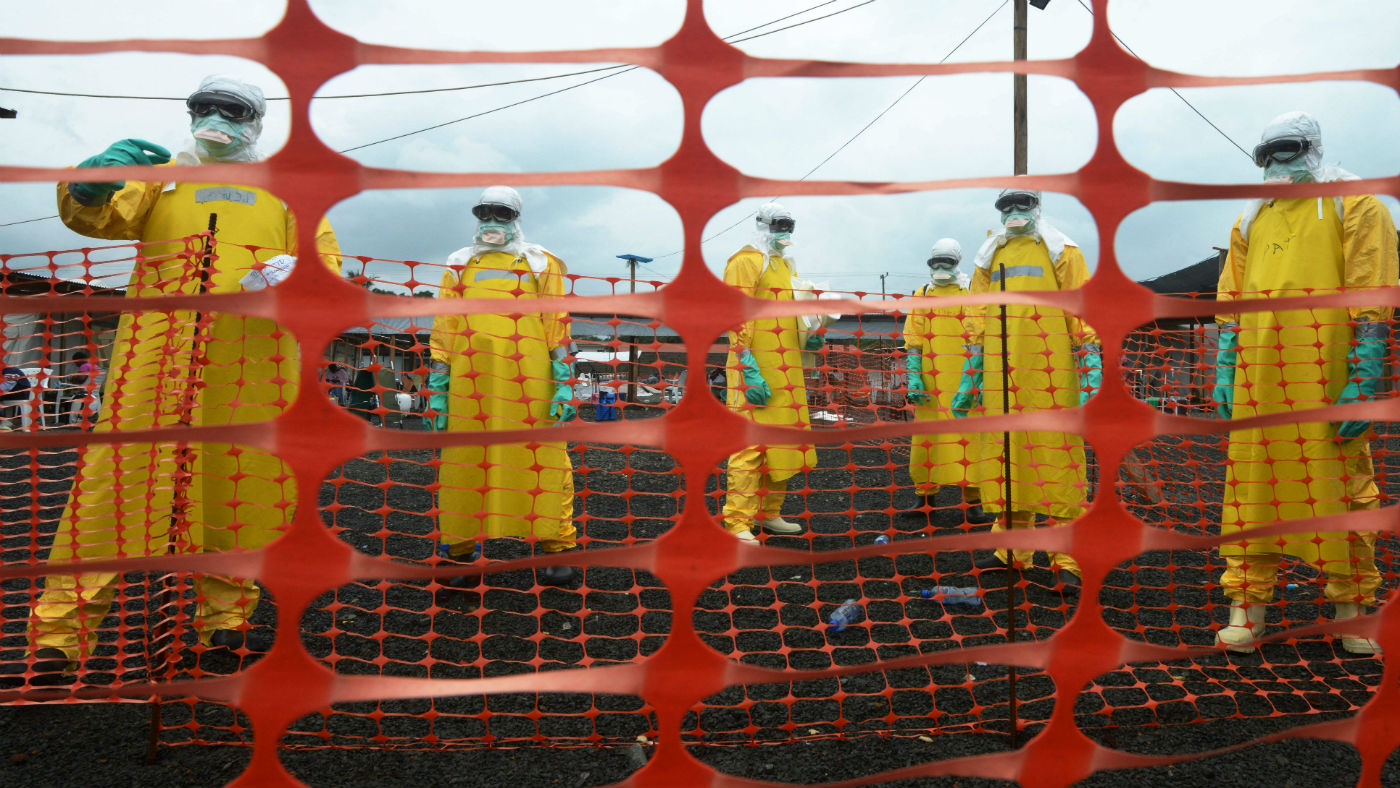Global pandemic could wipe out 900 million people
Virus simulation shows governments and health bodies are insufficiently prepared for flu-like breakout

A free daily email with the biggest news stories of the day – and the best features from TheWeek.com
You are now subscribed
Your newsletter sign-up was successful
Governments and international health bodies are wholly unprepared for a global flu pandemic that could wipe out almost a billion people, scientists have warned.
Virus simulations conducted at Johns Hopkins University in Baltimore found the spread of a new pathogen could kill up to 900 million in a matter of years if it started to spread tomorrow.
Researchers concluded that a made-up illness, a new type of parainfluenza known as Clade X, which was spread by coughing would kill 150 million people – almost three times the UK population – in less than two years in the fictional situation.
The Week
Escape your echo chamber. Get the facts behind the news, plus analysis from multiple perspectives.

Sign up for The Week's Free Newsletters
From our morning news briefing to a weekly Good News Newsletter, get the best of The Week delivered directly to your inbox.
From our morning news briefing to a weekly Good News Newsletter, get the best of The Week delivered directly to your inbox.
The simulation was designed so the pathogen wasn’t markedly more dangerous than real illnesses such as Sars – “and illustrates the tightrope governments tread in responding to such illnesses”, says Metro.
The simulation predicted how governments and health authorities around the world would react to a deadly infection spreading so quickly. Real health professionals took part in the experiment, including US politicians Tom Daschle and Susan Brooks, and former director of the Centers for Disease Control and Prevention, Julie Gerberding.
However, they were not able to prevent the disease from spreading and killing millions of people, “making experts worried the world is not prepared for a deadly pandemic”, reports the Daily Mail.
Twenty months after the start of the simulated outbreak, 150 million people had died and no vaccine had been developed. Researchers said the pandemic would have ended with up to 900 million dead, nearly 10% of the world’s population.
A free daily email with the biggest news stories of the day – and the best features from TheWeek.com
Speaking to Business Insider, Dr Eric Toner of the Johns Hopkins Center for Global Health Security, said the research highlighted many of the shortcomings in our global healthcare system.
“We don’t have the ability to produce vaccines to a novel pathogen within months rather than decades and we don’t have the global public health capabilities that would allow us to rapidly identify and control an outbreak before it becomes a pandemic,” he said.
Healthcare systems around the world would struggle to treat huge numbers of people and potentially fail, he said, adding that it was “lucky” the Sars virus, which killed 10% of the 8,000 people it infected 2003, had not been more severe.
“It will happen,” he warned, “but I don’t know when.”
-
 The EU’s war on fast fashion
The EU’s war on fast fashionIn the Spotlight Bloc launches investigation into Shein over sale of weapons and ‘childlike’ sex dolls, alongside efforts to tax e-commerce giants and combat textile waste
-
 How to Get to Heaven from Belfast: a ‘highly entertaining ride’
How to Get to Heaven from Belfast: a ‘highly entertaining ride’The Week Recommends Mystery-comedy from the creator of Derry Girls should be ‘your new binge-watch’
-
 The 8 best TV shows of the 1960s
The 8 best TV shows of the 1960sThe standout shows of this decade take viewers from outer space to the Wild West
-
 Epstein files topple law CEO, roil UK government
Epstein files topple law CEO, roil UK governmentSpeed Read Peter Mandelson, Britain’s former ambassador to the US, is caught up in the scandal
-
 Iran and US prepare to meet after skirmishes
Iran and US prepare to meet after skirmishesSpeed Read The incident comes amid heightened tensions in the Middle East
-
 Israel retrieves final hostage’s body from Gaza
Israel retrieves final hostage’s body from GazaSpeed Read The 24-year-old police officer was killed during the initial Hamas attack
-
 China’s Xi targets top general in growing purge
China’s Xi targets top general in growing purgeSpeed Read Zhang Youxia is being investigated over ‘grave violations’ of the law
-
 Panama and Canada are negotiating over a crucial copper mine
Panama and Canada are negotiating over a crucial copper mineIn the Spotlight Panama is set to make a final decision on the mine this summer
-
 Why Greenland’s natural resources are nearly impossible to mine
Why Greenland’s natural resources are nearly impossible to mineThe Explainer The country’s natural landscape makes the task extremely difficult
-
 Iran cuts internet as protests escalate
Iran cuts internet as protests escalateSpeed Reada Government buildings across the country have been set on fire
-
 US nabs ‘shadow’ tanker claimed by Russia
US nabs ‘shadow’ tanker claimed by RussiaSpeed Read The ship was one of two vessels seized by the US military